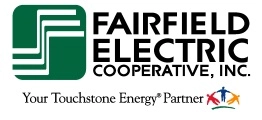Voluntary and Open Membership
Cooperatives are voluntary organizations, open to all persons able to use their services and willing to accept the responsibilities of membership, without gender, social, racial, political or religious discrimination.
Democratic Member Control
Cooperatives are democratic organizations controlled by their members, who actively participate in setting policies and making decisions. The elected representatives are accountable to the membership. In primary cooperatives, members have equal voting rights (one member, one vote) and cooperatives at other levels are organized in a democratic manner.
Members’ Economic Participation
Members contribute equitably to, and democratically control, the capital of their cooperative. At least part of that capital is usually the common property of the cooperative. Members usually receive limited compensation, if any, on capital subscribed as a condition of membership. Members allocate surpluses for any or all of the following purposes: developing the cooperative, possibly by setting up reserves, part of which at least would be indivisible; benefiting members in proportion to their transactions with the cooperative; and supporting other activities approved by the membership.
Autonomy and Independence
Cooperatives are autonomous, self-help organizations controlled by their members. If they enter into agreements with other organizations, including governments, or raise capital from external sources, they do so on terms that ensure democratic control by their members and maintain their cooperative autonomy.
Education, Training, and Information
Cooperatives provide education and training for their members, elected representatives, managers and employees so they can contribute effectively to the development of their cooperatives. They inform the general public, particularly young people and opinion leaders, about the nature and benefits of cooperation.
Cooperation Among Cooperatives
Cooperatives serve their members most effectively and strengthen the cooperative movement by working together through local, national, regional and international structures.
Concern for Community
While focusing on member needs, cooperatives work for the sustainable development of their communities through policies accepted by their members.
Safety
At your Touchstone Energy cooperative, member safety is important to us. Below are some links to important safety information to help keep you and your family safe
- Power Line Safety
- Power Lines and Cars
- Generator Safety
Electrical Safety And Generators
Preventing Electrocutions Associated with Portable Generators Plugged Into Household Circuits
When power lines are down, residents can restore energy to their homes or other structures by using another power source such as a portable generator. If water has been present anywhere near electrical circuits and electrical equipment, turn off the power at the main breaker or fuse on the service panel. Do not turn the power back on until electrical equipment has been inspected by a qualified electrician.
If it is necessary to use a portable generator, manufacturer recommendations and specifications must be strictly followed. If there are any questions regarding the operation or installation of the portable generator, a qualified electrician should be immediately contacted to assist in installation and start-up activities. The generator should always be positioned outside the structure.
When using gasoline- and diesel-powered portable generators to supply power to a building, switch the main breaker or fuse on the service panel to the "off" position prior to starting the generator. This will prevent power lines from being inadvertently energized by backfeed electrical energy from the generators, and help protect utility line workers or other repair workers or people in neighboring buildings from possible electrocution. If the generator is plugged into a household circuit without turning the main breaker to the “off” position or removing the main fuse, the electrical current could reverse, go back through the circuit to the outside power grid, and energize power lines or electrical systems in other buildings to at or near their original voltage without the knowledge of utility or other workers.
Effects of Backfeed
The problem of backfeed in electrical energy is a potential risk for electrical energy workers. Electrocutions are the fifth leading cause of all reported occupational deaths. Following the safety guidelines below can reduce this risk.
Other Generator Hazards
Generator use is also a major cause of carbon monoxide (CO) poisoning. Generators should only be used in well ventilated areas.



 Member
Member